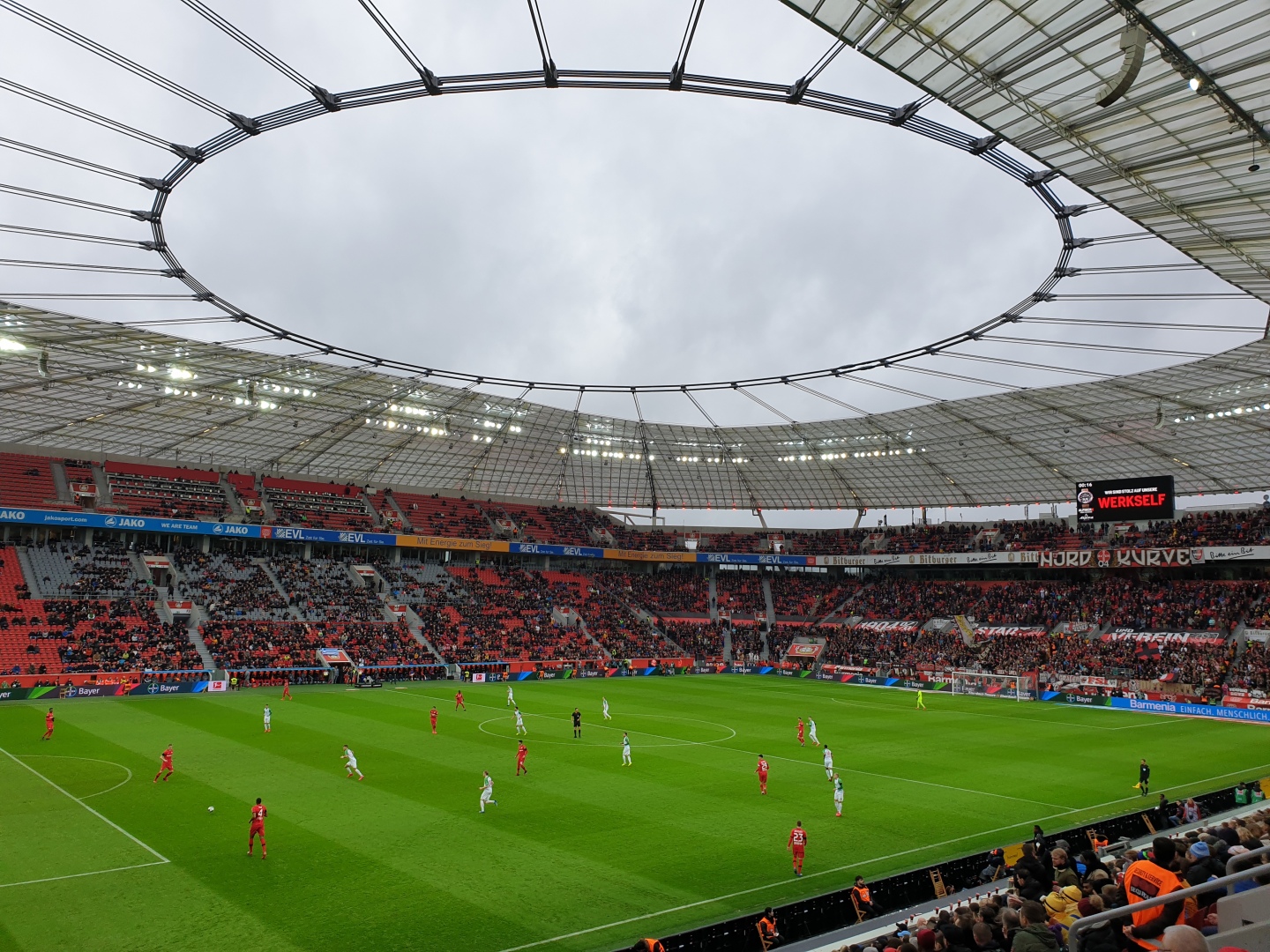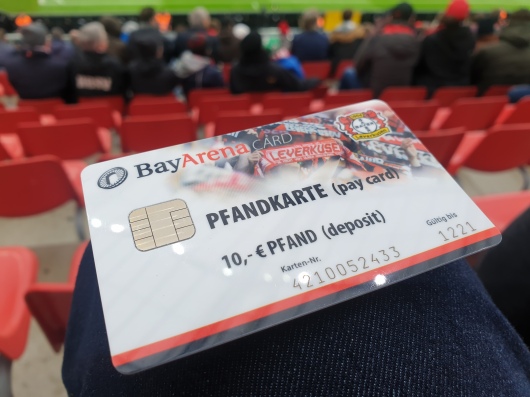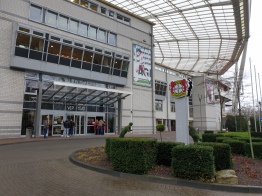It was the 24th April 2002 and my late Grandma was shouting at me for blowing a fuse in her living room. I was only seven years old and hadn’t yet been taught what a fuse was by my Year 2 teacher Mrs. Snape (no relation to the well known Professor). I knew for a fact that I had done nothing wrong as I was far too busy playing with the family collection of toy cars to be re-configuring the electrics of a semi-detached suburban house in Sale.
Just a few miles down the road Manchester United were hosting Bayer Leverkusen in the Champions League semi-final. These were the days when I had no idea who Bolton Wanderers were and I idolised the likes of David Beckham and Ruud Van Nistelrooy; loving everything to do with the Red Devils. The England captain was unavailable for the Bayer game as he was stretchered off against Deportivo de La Coruña in the previous round. When it happened, I vividly remember running to the back door to inform my dad – who was having a smoke at the time – that Beckham had gone off. In hindsight, even with the 2002 World Cup looming, I doubt he cared.
Anyway, back to me blowing the electrics. This bizarre event was just moments before kick off in the semi-final. I had watched all the build up with Des Lynam as I had been looking forward to this match all day. After all, I deserved to relax and put my feet up after being dragged around Sale Library and Sainsbury’s, racing around M33 with Penelope Pitstop herself enjoying life in her brand new Nissan Micra.
With the electrics off, I was being accused of something I hadn’t done and I was missing the match. I went for a sulk in the front room and could see the distinctive hue of a football pitch on a TV screen in the house opposite. I couldn’t tell what was going on but it was better than sitting in the dark. Moments later and a new fuse had been put ‘somewhere’ and the TV was on with Ryan Giggs racing down the wing.
The match itself ended 2-2. Bayer had the likes of Dimitar Berbatov, Ze Roberto and Michael Ballack playing for them that night. It was a strong side and they knocked United out of the competition on away goals, to secure a place in the final against Real Madrid. All those years ago, when I was watching that match on the TV at my Grandma’s I would never have even dreamt about one day watching Bayer play.
Having watched matches at FC Viktoria Köln and Borussia Mönchengladbach the previous two days of this trip, it was time for our final match before flying back home to Manchester. The journey from Düsseldorf, where we were staying, to Leverkusen was a bit of a faff as we had to drop our luggage off in Cologne beforehand.
 Mostly rural until the end of the 19th century, Leverkusen got its name thanks to chemist Carl Leverkus who chose to build a large factory there in 1860. Since then, the area has developed, becoming a city in 1975, and has become an important centre for chemical industry with it being home to multinational pharmaceutical company Bayer. It is one of Germany’s smallest cities and if you look on TripAdvisor, the top attractions are the football club closely followed by a Japanese Garden.
Mostly rural until the end of the 19th century, Leverkusen got its name thanks to chemist Carl Leverkus who chose to build a large factory there in 1860. Since then, the area has developed, becoming a city in 1975, and has become an important centre for chemical industry with it being home to multinational pharmaceutical company Bayer. It is one of Germany’s smallest cities and if you look on TripAdvisor, the top attractions are the football club closely followed by a Japanese Garden.
The local train network was letting us down again, with many trains being cancelled and delayed which meant we didn’t have much time to take in the atmosphere and area around the stadium before heading inside. As we pulled into Leverkusen Mitte station we passed the massive Bayer factories on the left hand side. There were a couple of others who seemed to be heading to the match so we followed them through a large park, arriving at the stadium 15 minutes later.
There didn’t seem to be the same drinking culture at Bayer as there had been at Hertha, Dresden and Gladbach. In fact, the whole experience seemed quite corporate and family orientated as opposed to other clubs where they accommodate large, vociferous and passionate fan bases. Both Adam and I agreed that we couldn’t watch football here every week, despite the stadium being up there with the best I’d visited.
 I say it is up there with the best but I hated every second of getting hold of a beer. Yes, I was kind of expecting the archaic practice of having to get hold of a stadium card to top up but it still didn’t make it any easier. A few years back when Matt and I took in games at Hertha, Club Brugge and Gent we became increasingly frustrated by having to purchase a card for each individual stadium. That way of paying for beers has – thankfully – started to disappear in the last couple of years, with contactless payment now being widely available at most stadiums; even Bolton do it as of last month! Bayer however, were still stuck back in 2012 and it was by far the worst kind of this system that I had used so far.
I say it is up there with the best but I hated every second of getting hold of a beer. Yes, I was kind of expecting the archaic practice of having to get hold of a stadium card to top up but it still didn’t make it any easier. A few years back when Matt and I took in games at Hertha, Club Brugge and Gent we became increasingly frustrated by having to purchase a card for each individual stadium. That way of paying for beers has – thankfully – started to disappear in the last couple of years, with contactless payment now being widely available at most stadiums; even Bolton do it as of last month! Bayer however, were still stuck back in 2012 and it was by far the worst kind of this system that I had used so far.
Through the turnstiles we went and headed to a little booth on the left hand-side where an old woman was in charge of dishing out payment cards. It was a €10 deposit and you then added whatever money you wanted. When we said we only wanted €20 on it, she looked stunned before telling us it wouldn’t be enough. It bloody well was.
Now the VERY proud owners of a BayArena card (for the next two hours at least, before we had to hand it back) we headed over to the beer counter and stocked up, knowing that we could spread our purchases out in the seating area as the crowd was fairly sparse in our part of the stadium.
Once the girls behind the counter had poured our chemical laced beers, we then had to insert the card into some form of machine and press a variety of buttons before we were released into the wilderness of the open concourse. The whole purchasing process really was quite pathetic for a club that is competing in both Bundesliga and Europa League football. If the club was a person, they would be one of those children in Year 5 who has just been given their first ever mobile phone by their parents that is actually older than they are. They think they’re cool and trendy with their technology but in reality, they’re an embarrassment and lagging behind everybody else.
Despite all this, I still love the stadium… and that’s without finding time to go into the main bar before the match, which I was told before our visit is nice but “too posh for the likes of you”. The stadium has been there since 1958 but it was gradually rebuilt from 1986 onwards, finishing in 1997 and gaining the BayArena name the following year. It was only in 2009 that the iconic oval roof was added along with the re-introduction of some standing areas. The Arena did bid to host matches in the 2006 World Cup but it was agreed that it would be impractical to increase the capacity to 40,000 purely for the tournament and so their bid was withdrawn.
 In the Ost Stand, we were sat opposite the Augsburg fans who, despite being the worst side I had seen in a good couple of years, didn’t stop waving their flags and singing songs throughout the match. I’m pretty sure their supporters who volunteered to wave the largest flags did so in an attempt to block their view of the match. There’s no way I would make a 700 mile round trip on a Sunday to watch my team put in such an insipid and uninspiring performance.
In the Ost Stand, we were sat opposite the Augsburg fans who, despite being the worst side I had seen in a good couple of years, didn’t stop waving their flags and singing songs throughout the match. I’m pretty sure their supporters who volunteered to wave the largest flags did so in an attempt to block their view of the match. There’s no way I would make a 700 mile round trip on a Sunday to watch my team put in such an insipid and uninspiring performance.
A win for Bayer in this match would take them level on points with Borussia Mönchengladbach who occupied fourth place. It would also put them just six points behind league leaders Bayern Munich. With club legend Lars Bender on the bench it was down to upcoming talent, 20 year old Kai Havertz to captain the side for the first time. It has been rumoured that Havertz is a target for many Premier League sides; in this match he became the second youngest captain in Bundesliga history at the age of 20. Only Lukas Podolski being able to better him.
Bayer had never lost to Augsburg in Bundesliga and the away side were on a run of three away matches without a goal. It made sense then that the away side set up with three at the back, with centre half Rani Khedira, the younger brother of Sami, getting booked in the early stages to make their afternoon less than comfortable.
Moussa Diaby, who had joined Bayer from Paris Saint-Germain in the summer, opened the scoring on 25 minutes. Kai Havertz picked the ball up in the Augsburg half and ran towards goal, picking out Diaby on the left who clipped the ball over Tomáš Koubek. The Czech international goalkeeper was once infamously forced to train with the women’s team while at Sparta Prague after he stated that ‘women belong at the stove’.
Talking of women in kitchens, we headed back to see our mates at the kiosk just before the half time whistle was blown. Between them they knocked up a beautiful currywurst and chips and provided us with yet more chemical tasting beer, which sat perfectly in one of those holders you see so many of at the cricket during the summer. We played a blinder, with only 30 cents being left on our BayArena card before handing it back over.
As the second half progressed the weather – which hadn’t been forecast – took a turn for the worst and it began to hammer it down. This would eventually result in my jeans (brand new) clinging to my legs while my boxers and socks were left feeling like they had just been for a spin in the washing machine. We enjoyed the second half, as we knew it would be more comforting than skipping through puddles in the parks of Leverkusen.
Nadiem Amiri, who had recently received his first call up for the German national side, doubled Leverkusen’s lead on 59 minutes with a great solo effort. He picked up a loose ball, ran past a couple of Augsburg defenders and hammered his shot into the bottom corner. The Arena erupted with some 90’s continental dance music being blared out. Moments later and Havertz hit the crossbar.
In the closing stages Julian Baumgartlinger came on for Sven Bender in a substitution that would receive a different reaction in the UK than it got in Germany.
Attempting to catch an earlier train back to Cologne, we left the match as the additional time was signalled. The rain really was teeming down now, with a sharp wind that took the breathe away. It was no fun whatsoever. Typically, after the 15 minute hike back to the station, the train we could have got on was pulling away meaning we had a 40 minute wait at Leverkusen Mitte. Whereas most stations would have a waiting area, or a bar, this one simply had a little shop. It was like being stuck in Kidsgrove or Daisy Hill.
As time progressed, more and more fans arrived at the station as they all huddled together in an attempt to keep warm. It proved to be useless and soon we had all frozen to a slow and painful death. One police man was seen bringing body bags to the scene to recover victims, while others were simply thrown straight into trenches on the other side of the railway bridge to save the authorities some time in their clean up mission.
It was as the double decker train pulled in that I realised I was just really tired and had in fact started to develop strange and profound visions of what would happen to us all next. Needless to say, we were both very happy when we finally arrived back in Cologne in search of somewhere to dry off and have a few drinks before heading back to the airport.
Hard Rock Cafe it was, providing some of the cheapest drinks of the whole weekend, served perfectly in the tall shot glasses which we had heard about. These glasses are apparently only really found in and around Cologne, with Kölsch beer best served in 0.2l form as the taste deteriorates quickly when sat in a large glass. I have to say I preferred drinking beer that way, as these days I become a bit over faced with a full pint of the stuff.
It had been an action packed three nights in Germany, taking in three different matches and four cities. The day after, as I sat at work, I caught up on the latest news on my phone. It had been reported that there had been 34 cases of something called ‘corona virus’ at the Cologne Festival that weekend. Little did we know what was about to follow.




























